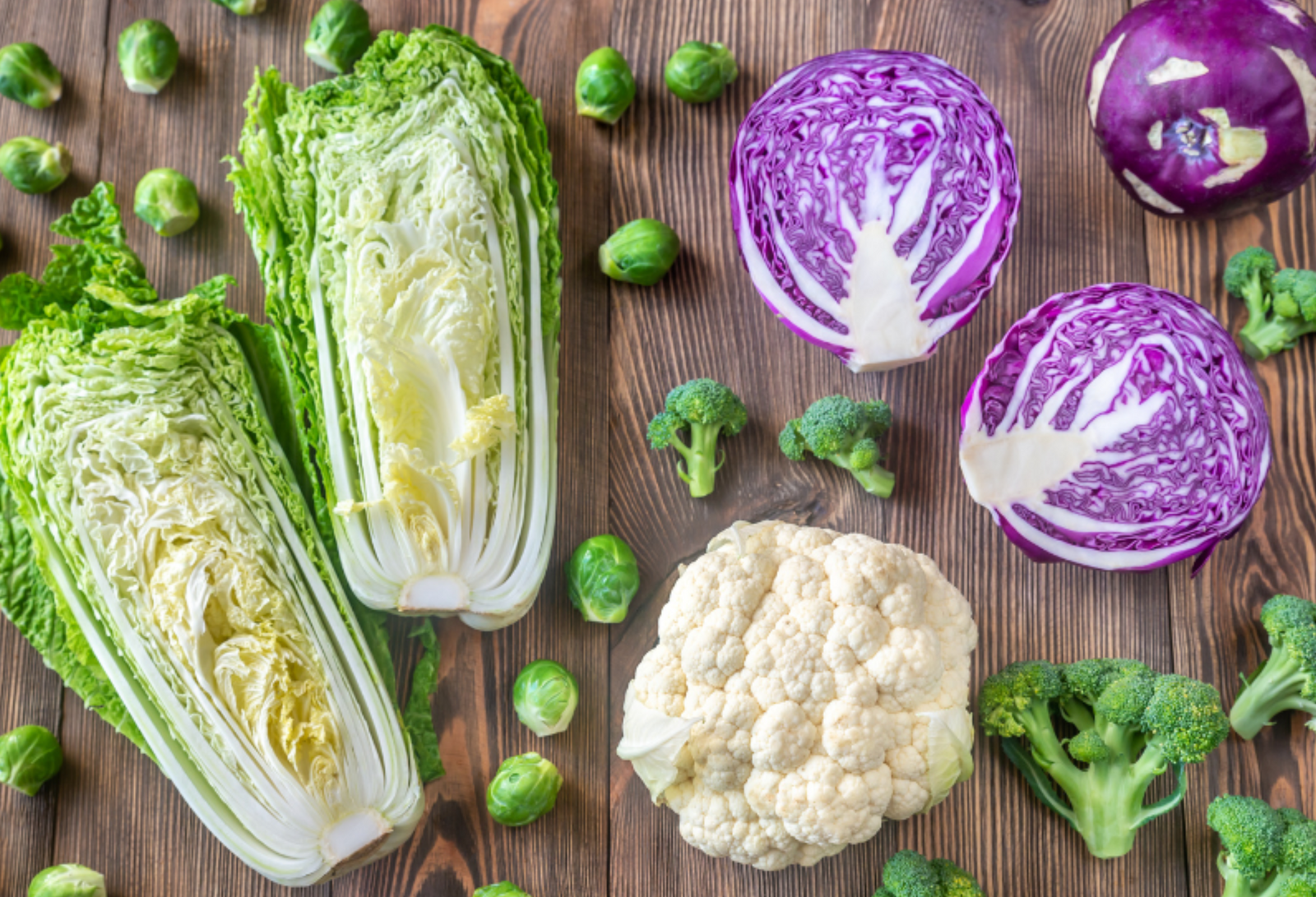Guide to Cruciferous Vegetables: Nutrient Powerhouses for Wellness and Flavor

Cruciferous vegetables, a diverse family of nutrient-packed plants, are the secret ingredients to a healthier and tastier life. This informative guide will take you on a journey through the world of cruciferous vegetables, sharing insights about their various members, their nutritional profiles, distinctiveness from other vegetable families, and the incredible health benefits they bring. Discover how these veggies star in our chef-crafted meals at Cura Kitchen, elevating both flavor and well-being.
Meet the Cruciferous Family: Cruciferous vegetables belong to the Brassicaceae family, encompassing a variety of well-known members:
- Broccoli
- Cauliflower
- Kale
- Brussels Sprouts
- Cabbage
- Bok Choy
- Arugula
- Radishes
- Turnips
Nutritional Powerhouses: What sets cruciferous vegetables apart is their exceptional nutrient density. They're rich in:
- Vitamin C: A crucial antioxidant for overall health.
- Vitamin K: Essential for bone health and blood clotting.
- Folate: Supports cell division and tissue growth.
- Fiber: Promotes digestion and helps maintain a healthy weight.
- Glucosinolates: Compounds with potential anti-cancer properties.
- Sulforaphane: A potent antioxidant with anti-inflammatory effects.
Distinctiveness from Other Vegetables: Cruciferous vegetables stand out in several ways:
- Unique Phytonutrients: They contain glucosinolates, which are not found in other vegetable families, and can break down into bioactive compounds.
- Strong Flavors: Many cruciferous veggies have distinct, bold flavors that can add depth to your dishes.
- Sulfur-Containing Compounds: These give cruciferous vegetables their characteristic aroma and contribute to their health benefits.
Health Benefits of Cruciferous Vegetables: Consuming cruciferous vegetables offers numerous health advantages:
- Cancer Prevention: Their compounds may help reduce the risk of certain cancers.
- Heart Health: Fiber and antioxidants support cardiovascular well-being.
- Digestive Health: Fiber promotes healthy digestion and gut microbiome.
- Bone Health: Vitamin K contributes to strong bones and bone metabolism.
Incorporating Cruciferous Vegetables into Your Diet:
- Mix and Match: Combine different cruciferous vegetables for vibrant, flavorful dishes.
- Blanch for Brightness: Quick blanching helps retain their vibrant colors and nutrients.
- Creative Seasonings: Experiment with spices and herbs like garlic, ginger, and thyme.
- Versatile Uses: From salads to stir-fries, cruciferous veggies can enhance a variety of dishes.
Cura Kitchen's Culinary Creations: At Cura Kitchen, we understand the extraordinary value of cruciferous vegetables. We thoughtfully incorporate these nutrient-packed veggies into our chef-crafted meals to enhance both flavor and nutrition. Our creations celebrate the wholesome goodness of cruciferous vegetables while delighting your taste buds. Explore how our culinary experts make these veggies shine in every dish.
Cruciferous vegetables are a nutritional goldmine, offering a wealth of benefits that can enrich your meals and your health. At Cura Kitchen, we're proud to showcase these veggies in our culinary creations, ensuring that you savor the delicious path to wellness they offer. Explore the world of cruciferous vegetables, unlock their flavors, and experience the transformative journey to well-being they provide. Check our our Signature Program meal prep here.



